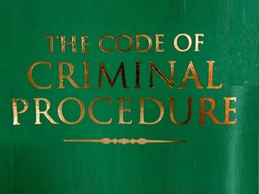Defining Actus Reus: Concurrent or Consecutive Sentences under Penal Law 70.25
People v. Couser
New York of Appeals
2016 NY Slip Op 07831
Decided on November 22, 2016
 Issue: (1) Whether Penal Law 70.25 (2) permits consecutive or concurrent sentencing for defendants robbery and attempted robbery convictions. (2) A. Whether defendant received ineffective assistance of counsel when his counsel advised him that he could receive an additional consecutive sentence if he went to trial, and B. whether defendant took an Alford plea knowingly, voluntarily and intelligently.
Issue: (1) Whether Penal Law 70.25 (2) permits consecutive or concurrent sentencing for defendants robbery and attempted robbery convictions. (2) A. Whether defendant received ineffective assistance of counsel when his counsel advised him that he could receive an additional consecutive sentence if he went to trial, and B. whether defendant took an Alford plea knowingly, voluntarily and intelligently.
Holding: The Court of Appeals held that (1) defendants consecutive sentences meet the requirements of Penal Law 70.25 (2). The Court also held that (2) A. defendant received effective assistance of counsel, and that B. defendants Alford plea was knowing, intelligent, and voluntary.
Facts: On August 16, 2008, defendant approached a group of five individuals, pulled out a gun, and ordered everyone to get on the ground, threatening to kill them if they did not do so. Defendant cocked the gun, placed it on the back of a victims head, and fired the gun as the victim was lowering to the ground. The victim managed to survive the shot, which grazed the victims head. Defendant took another victims purse during the incident. Later, police recovered a handgun near the incident that was verified to be the gun used during the shooting. During interrogation for an unrelated matter, defendant admitted to attempting to rob the group of individuals in the park and told police he did not intend to kill anyone. Defendant was charged with one count of first-degree attempted murder, one count of first-degree robbery, two counts of second-degree criminal possession of a weapon, three counts of first-degree attempted robbery, and third-degree criminal possession of a weapon.
 Three out of four victims testified that they heard the gun cock before pointing the gun at the victim, and defendant claimed the gun accidentally discharged and he did not point it at anyone in particular. The jury did not reach a verdict on the first-degree attempted murder charge, but found defendant guilty of the remaining charges. Defendant consented to a mistrial for the attempted murder and accepted a partial verdict.
Three out of four victims testified that they heard the gun cock before pointing the gun at the victim, and defendant claimed the gun accidentally discharged and he did not point it at anyone in particular. The jury did not reach a verdict on the first-degree attempted murder charge, but found defendant guilty of the remaining charges. Defendant consented to a mistrial for the attempted murder and accepted a partial verdict.
The trial court ordered the robbery and two counts of criminal possession of a weapon in the second degree sentences to run concurrently with each other and consecutively to the remaining sentences. The court also ordered the sentence for each attempted robbery count to run consecutively to all other sentences, and that the criminal possession of a weapon in the third degree sentence to run concurrently with all other sentences.
Before the retrial, defense counsel requested an Alford plea to the minimum sentence available to run concurrent to the other sentences. The court ultimately permitted the plea, but allowed argument thereafter. Defense indicated that he preferred to take the plea and receive a concurrent sentence. Defendant acknowledged to the court that he was pleading guilty, and the court ordered the sentence of 15 years to life to run concurrently with the preceding sentences. Defendant made two appeals: one from his convictions following the jury verdict and the other from his conviction following the Alford plea.
The Appellate Division directed the sentences for the attempted robbery counts to run concurrently with each other and consecutively to the completed robbery counts on the first appeal, concluding that the actus reus of the attempted robbery counts was a single act establishing one offense. Appellate Division affirmed in defendants second appeal and held that the attempted murder count did not require a concurrent sentence since the shooting was a separate act from the robbery and attempted robbery acts. The Appellate Division also held that defense counsel was not ineffective and that the Alford plea was knowing, intelligent and voluntary. The Court of Appeals agreed with the Appellate Division on all decisions.
Legal Analysis: Penal Law 70.25 (2) permits sentences for multiple offenses channeled through a single act to run concurrently with each other. Specifically, Penal Law 70.25 (2) provides: When more than one sentence of imprisonment is imposed on a person for two or more offenses committed through a single act or omission, or through an act or omission which in itself constituted one of the offenses and also was a material element of the other, the sentencesmust run concurrently. Here, in the first appeal, defendant asserted that the elements of the robbery and attempted robbery offenses overlapped because the act of waving his gun was a material element in both offenses. However, the Appellate Division and the Court of Appeals concurred that the act of taking a victims purse constitutes a separate act, which would mandate the robbery sentence to run concurrently to the attempted robbery sentence.
 The Court of Appeals previously established two requirements for determining whether sentences run concurrently or consecutively. First, sentences for multiple offenses may not run consecutively where a single act constitutes two offenses. Second, those said sentences may not run consecutively where a single act constitutes one of the offenses and a material element of the other (citing People v Laureano, 87 NY2d at 643
The Court of Appeals previously established two requirements for determining whether sentences run concurrently or consecutively. First, sentences for multiple offenses may not run consecutively where a single act constitutes two offenses. Second, those said sentences may not run consecutively where a single act constitutes one of the offenses and a material element of the other (citing People v Laureano, 87 NY2d at 643
see People v Battles, 16 NY3d 54, 58 [2010]). Penal Law 160.15 (4) provides the elements for first-degree robbery: (1) forcibly stealing property and (2) displaying a firearm. The Court held that while elements of first-degree robbery and first-degree attempted robbery obviously overlap, the act of taking the victims purse, an act only present in the completed first-degree robbery charge, identifies a separate act that distinguishes the two offenses and prevents the sentences to run concurrently.
In the second appeal, defendant argued that his Alford plea must be vacated because he received ineffective counsel and because the plea was not knowing, voluntary and intelligent.
First, regarding defendants claim that he received ineffective assistance of counsel, defendant addressed his counsels advice to take the plea instead of going to trial because there was a possibility of receiving a consecutive sentence for attempted murder. Defendant argued that this advice was his only reason for taking the plea, and further stated that this advice was incorrect. Defendant claimed that his attempted murder conviction must run concurrently with his conviction for robbery pursuant to the first-degree felony murder statute since the robbery element is a requirement under the first degree murder felony section. The Fourth Department previously affirmed that sentences could run consecutively when faced with the same issues as the case at bar. The Court of Appeals concluded that based on the Fourth Departments decision, defendant did not receive ineffective assistance of counsel, even if the advice was incorrect.
Defendant also argued the validity of his plea, alleging that the sentencing court failed to perform a factual allocution where trial evidence showed he lacked the intent required for attempted murder. However, the Alford plea only requires strong evidence of guilt. The Court of Appeals held that the plea was appropriate since trial evidence was sufficient to establish strong evidence of guilt (i.e. three of the four victims testifying that they heard the defendant cock the gun before placing it at the back of the victims head.) Furthermore, defendant clearly stated his understanding of the plea during trial. Defendant further argued he only pled to ensure he would not receive a consecutive sentence. Similarly to the issue in the first appeal, the Court of Appeals held that the attempted murder sentence was allowed to run consecutively since the shooting of one victim and the taking of another victims purse constituted two separate acts. The Court noted that, here, defendant received the benefit of a concurrent sentence when he took the Alford plea.
